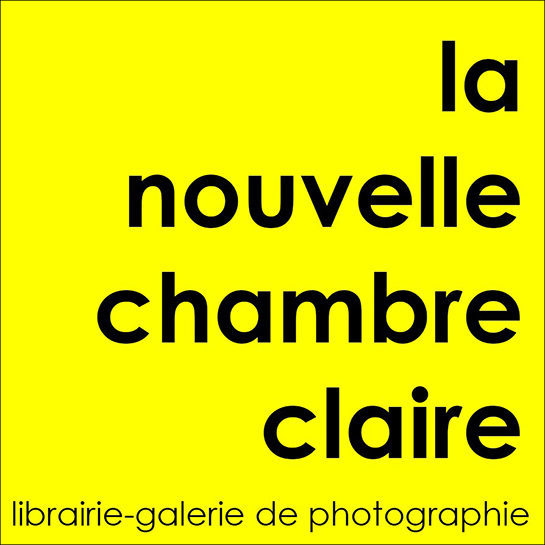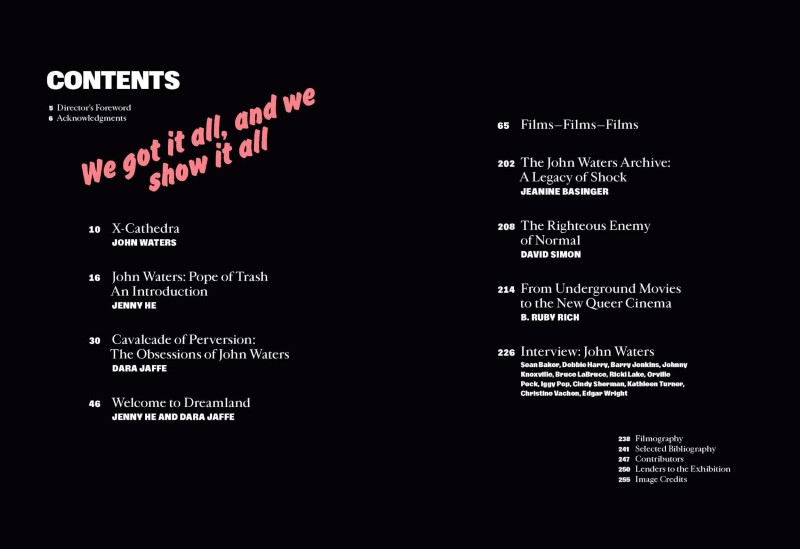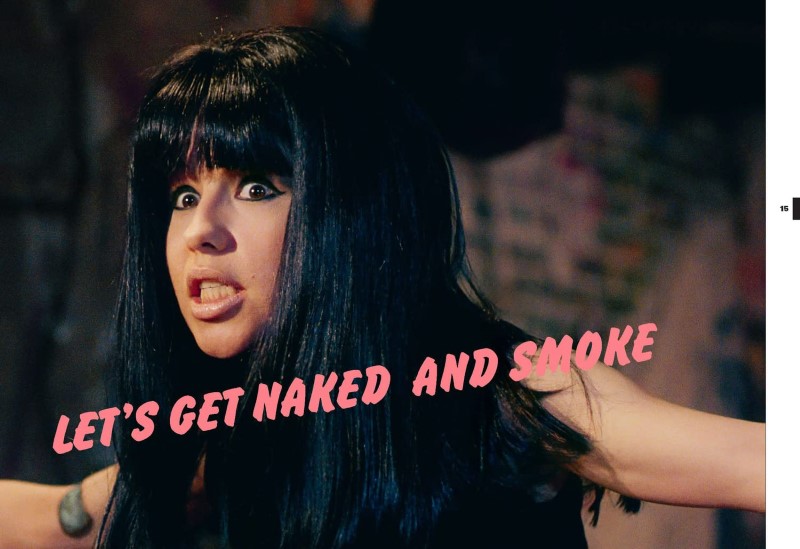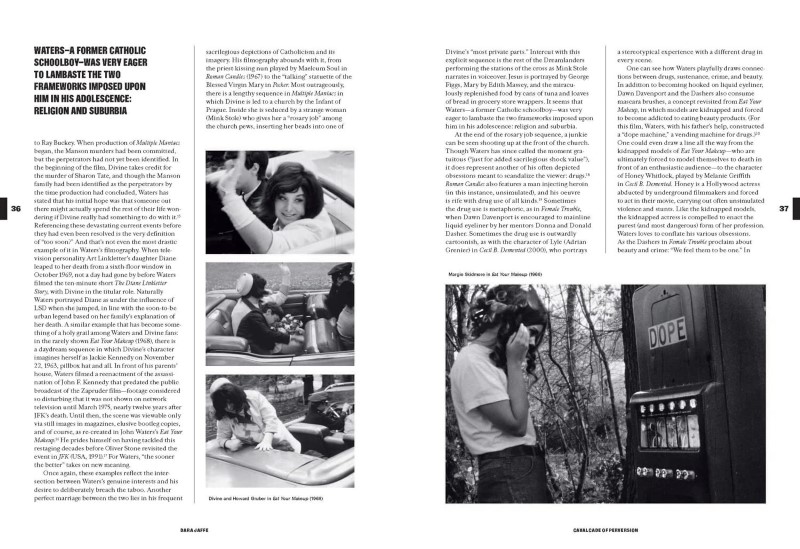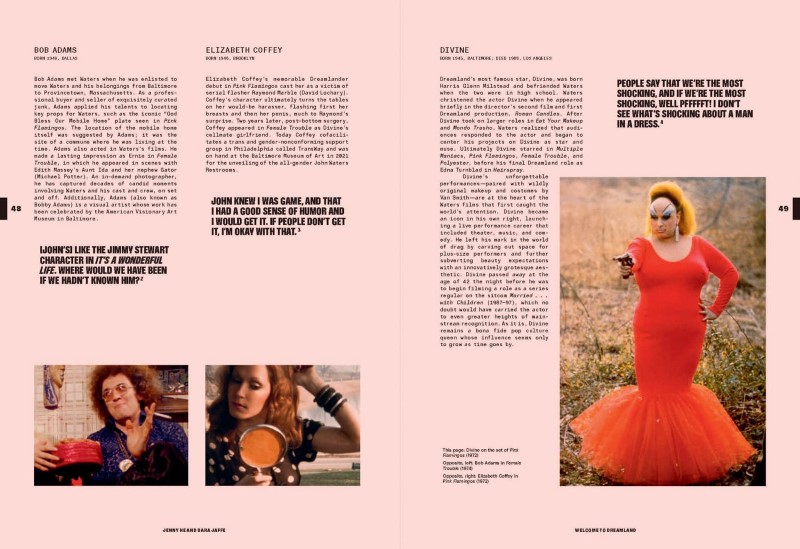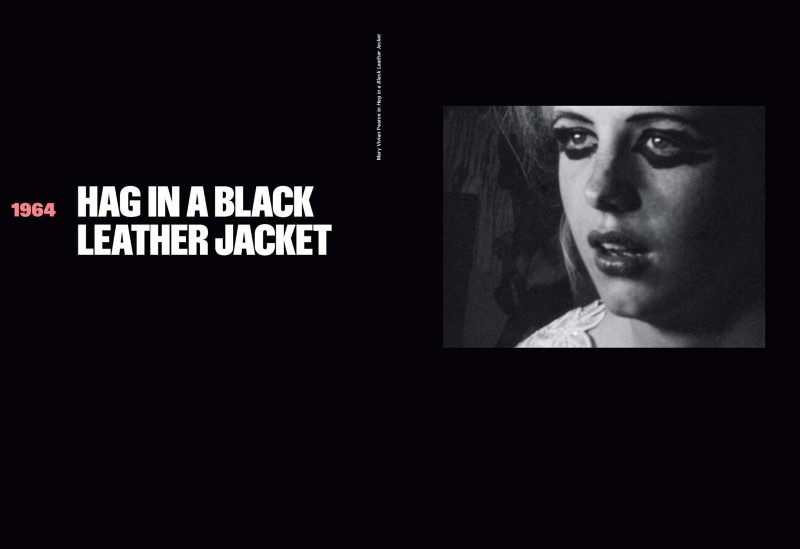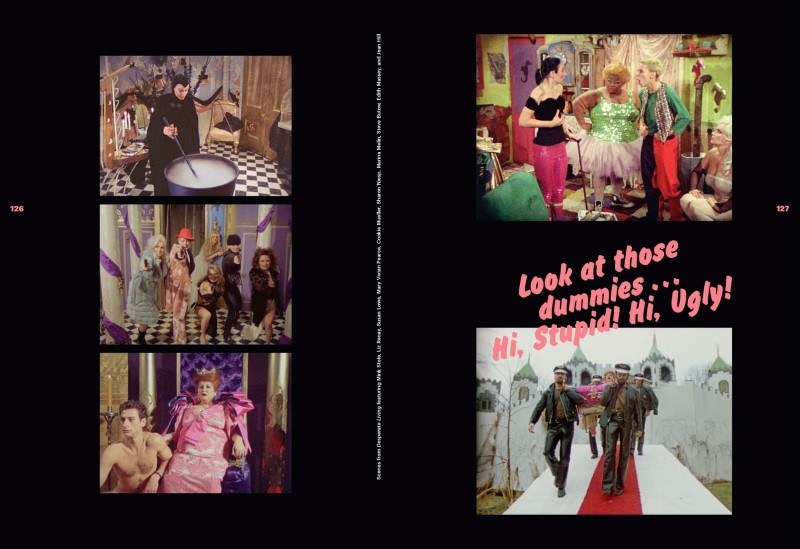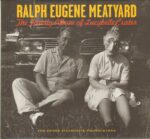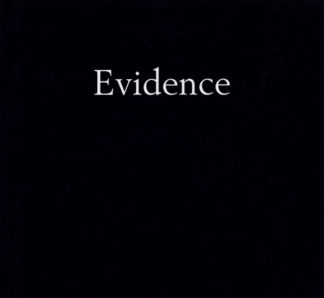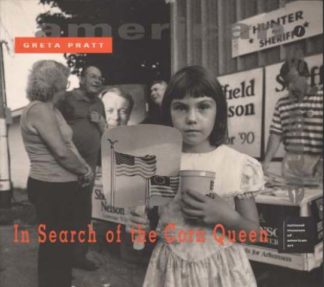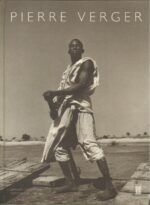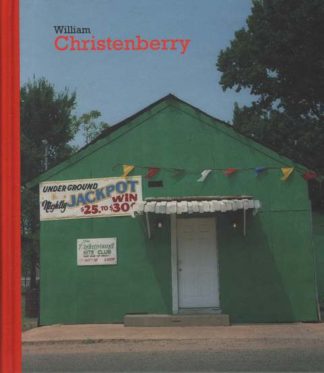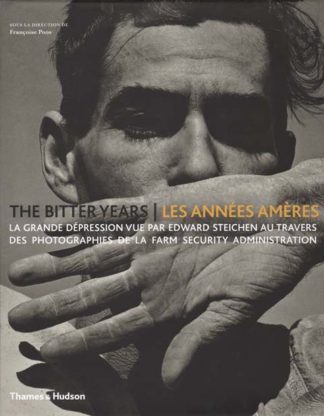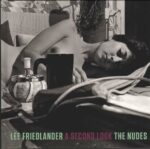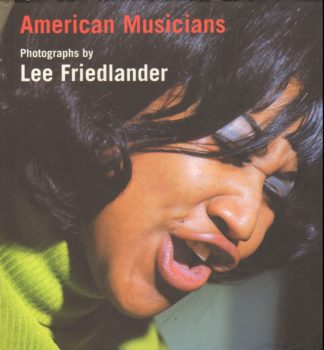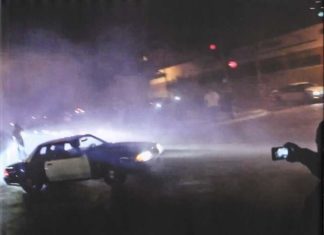Connu pour repousser les limites du bon goût, John Waters (né en 1946) a créé un canon de films à haute valeur de choc et de divertissement qui a cimenté sa position comme l’un des auteurs les plus vénérés et subversifs du cinéma indépendant américain. Mettant en vedette des muses inadaptées, des hommages à sa ville natale de Baltimore et des thèmes de fétichisme, d’obsession et de culture de célébrité, ses films renégats — y compris Pink Flamingos (1972), Female Trouble (1974), Desperate Living (1977), Hairspray (1988), Serial Mom (1994) et A Dirty Shame (2004)… sont des comédies irrévérencieuses et hilarantes qui s’inspirent amoureusement de William Castle, Herschell Gordon Lewis, Russ Meyer, Andy Warhol et Pier Paolo Pasolini.
John Waters : Pope of Trash accompagne une exposition phare au Academy Museum of Motion Pictures, la première consacrée uniquement aux films de John Waters. Le livre présente des costumes, des accessoires, des scripts manuscrits, des dessins conceptuels, de la correspondance, des gadgets promotionnels, des photographies de production et d’autres matériaux originaux de tous les longs métrages et courts métrages du cinéaste. Mettant en lumière un grand nombre de ses collaborateurs de longue date, il propose également une nouvelle interview de Waters et des textes des commissaires Jenny He et Dara Jaffe, l’historienne de cinéma Jeanine Basinger, critique de cinéma et théoricienne culturelle B. Ruby Rich, et l’auteur-scénariste-producteur David Simon, qui explorent la façon dont les films de Waters ont redéfini les possibilités du cinéma indépendant; montage avec un texte de Jenny He et Dara Jaffe, préface de Jacqueline Stewart, texte de Jeanine Basinger, B. Ruby Rich, David Simon, John Waters, entrevue avec Sean Baker, Debbie Harry, Barry Jenkins, Johnny Knoxville, Bruce LaBruce, Ricki Lake, Orville Peck, Iggy Pop, Cindy Sherman, Kathleen Turner, Christine Vachon, Edgar Wright.
Known for pushing the boundaries of good taste, John Waters (born 1946) has created a canon of high-shock-value, high-entertainment movies that have cemented his position as one of the most revered and subversive auteurs in American independent cinema. Featuring misfit muses, tributes to his hometown of Baltimore and themes of fetish, obsession and celebrity culture, his renegade films—including Pink Flamingos (1972), Female Trouble (1974), Desperate Living (1977), Hairspray(1988), Serial Mom (1994) and A Dirty Shame (2004)—are irreverent, laugh-out-loud comedies that lovingly draw inspiration from William Castle, Herschell Gordon Lewis, Russ Meyer, Andy Warhol and Pier Paolo Pasolini alike.
John Waters: Pope of Trash accompanies a landmark exhibition at the Academy Museum of Motion Pictures, the first dedicated solely to Waters’ films. The book presents costumes, props, handwritten scripts, concept drawings, correspondence, promotional gimmicks, production photography and other original materials from all of the filmmaker’s features and shorts. Spotlighting many of his longtime collaborators, it also features a new interview with Waters and texts by curators Jenny He and Dara Jaffe, film historian Jeanine Basinger, film critic and cultural theorist B. Ruby Rich, and author-writer-producer David Simon that explore how Waters’ movies have redefined the possibilities of independent cinema ; edited with text by Jenny He and Dara Jaffe, foreword by Jacqueline Stewart, text by Jeanine Basinger, B. Ruby Rich, David Simon, John Waters, interview with Sean Baker, Debbie Harry, Barry Jenkins, Johnny Knoxville, Bruce LaBruce, Ricki Lake, Orville Peck, Iggy Pop, Cindy Sherman, Kathleen Turner, Christine Vachon, Edgar Wright.
